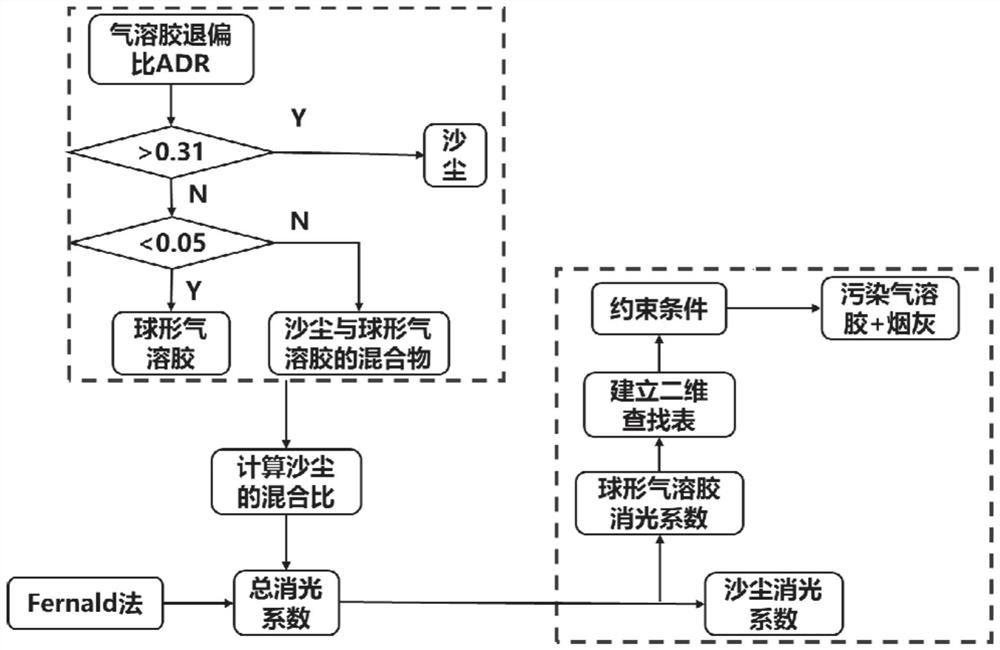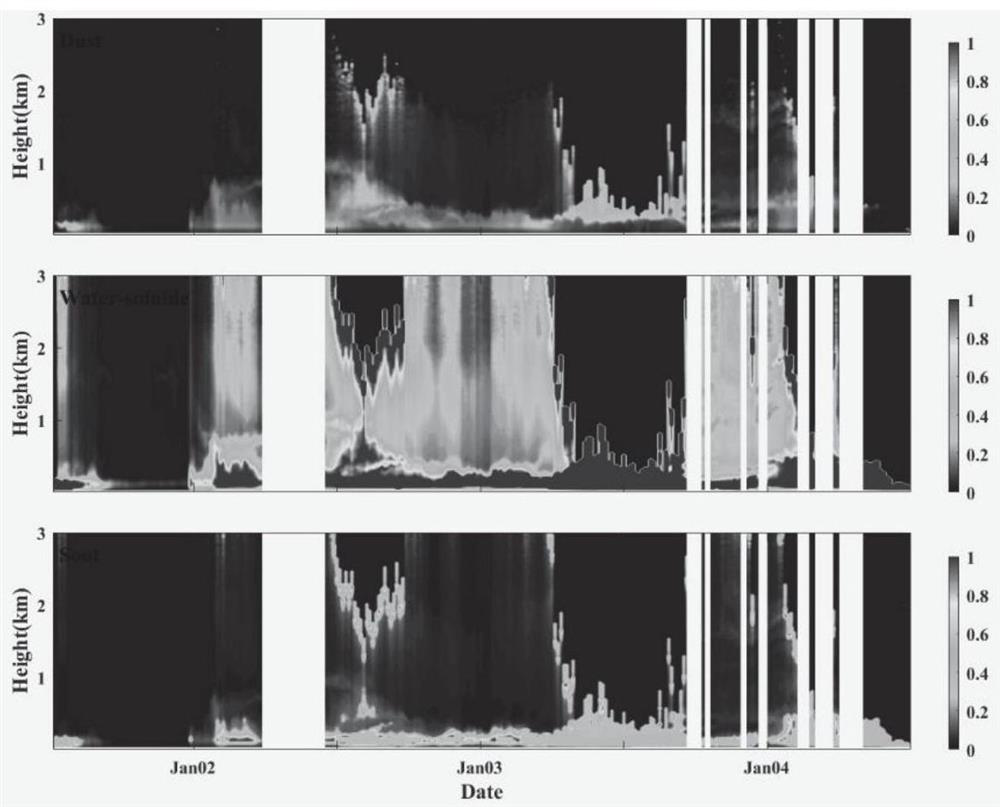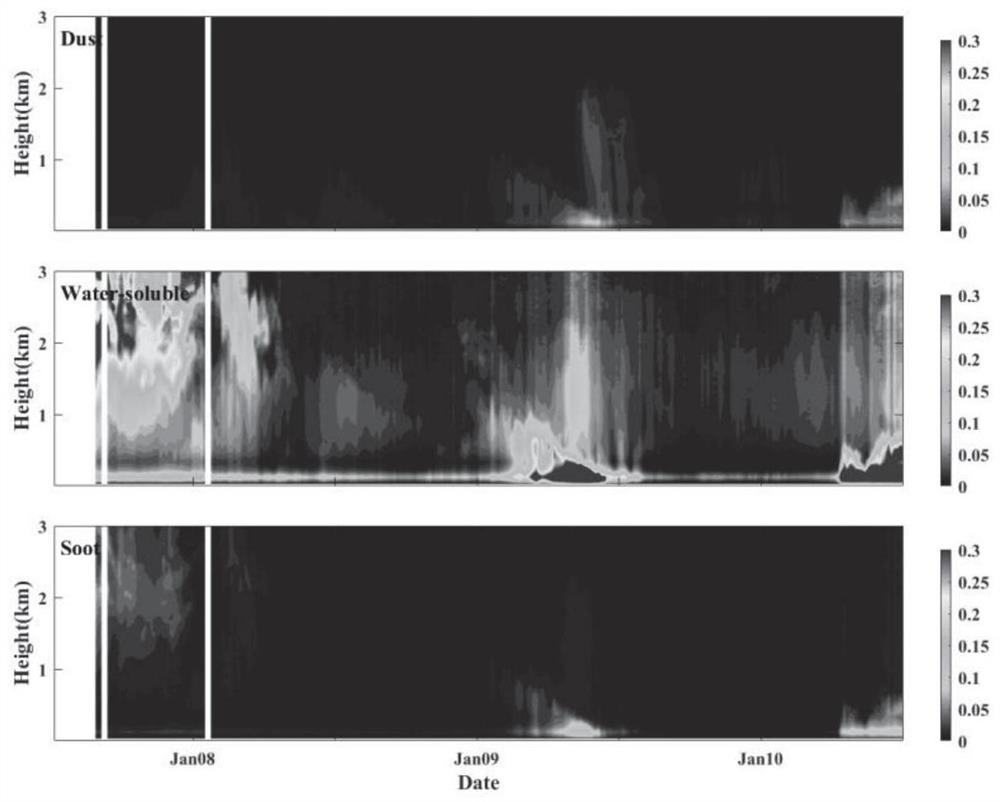A Method for Retrieving Aerosol Composition Using Lidar Ratio and Depolarization Ratio
A laser radar and aerosol technology, which is applied in the directions of using re-radiation, analyzing materials, and electromagnetic wave re-radiation, etc., can solve problems such as the difference in depolarization ratio, and achieve the effect of high accuracy and low detection cost.
- Summary
- Abstract
- Description
- Claims
- Application Information
AI Technical Summary
Problems solved by technology
Method used
Image
Examples
Embodiment Construction
[0067] The specific embodiments of the present invention will be further described below in conjunction with the accompanying drawings. It should be noted here that the descriptions of these embodiments are used to help understand the present invention, but are not intended to limit the present invention. In addition, the technical features involved in the various embodiments of the present invention described below may be combined with each other as long as they do not constitute a conflict with each other.
[0068] Such as figure 1 As shown, a method for retrieving aerosol components using lidar ratio and depolarization ratio, including: S1, distinguishing dust, spherical aerosol, and a mixture of dust and spherical aerosol according to the depolarization ratio; S2, Calculating the mixing ratio of the dust in the mixture of the dust and the spherical aerosol; S3, distinguishing the soot and the water-soluble aerosol in the spherical aerosol according to the lidar ratio.
...
PUM
 Login to View More
Login to View More Abstract
Description
Claims
Application Information
 Login to View More
Login to View More - R&D
- Intellectual Property
- Life Sciences
- Materials
- Tech Scout
- Unparalleled Data Quality
- Higher Quality Content
- 60% Fewer Hallucinations
Browse by: Latest US Patents, China's latest patents, Technical Efficacy Thesaurus, Application Domain, Technology Topic, Popular Technical Reports.
© 2025 PatSnap. All rights reserved.Legal|Privacy policy|Modern Slavery Act Transparency Statement|Sitemap|About US| Contact US: help@patsnap.com



